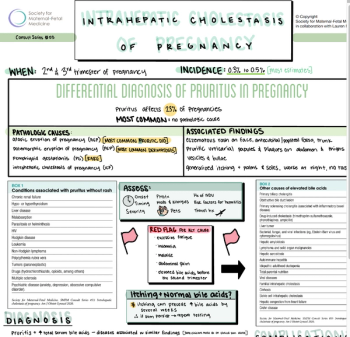
Refer to this visual summary from SMFM wherever you practice.

Refer to this visual summary from SMFM wherever you practice.

When considering the “health” of a medical practice, much of the focus is on financial indicators: missing collections at the time of service, recurring denials, poor claims management and aging patient balances. However, another area needs attention but is often overlooked: patient satisfaction.

A significant uptick in telemedicine for managing diabetes in pregnancy occurred during the COVID-19 crisis, which should continue as the pandemic subsides, according to a session on telemedicine at the American Diabetes Association (ADA) virtual conference.
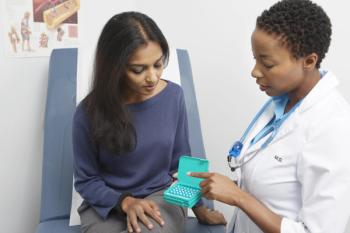
Results from one study found that many patients avoid going to the doctor because they feel uncomfortable seeking medical care or fear a serious illness. As providers, we need to recognize these issues and create a welcoming environment for all patients to ensure they don’t postpone care or avoid it entirely.

There are many reasons why a caregiver may refuse to have his or her child receive the human papillomavirus (HPV) vaccine, including safety concerns. A research letter examines whether those concerns have increased.
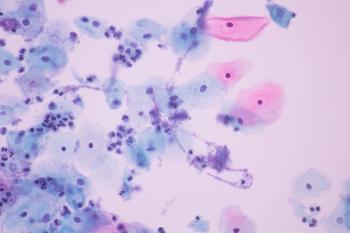
On June 2, 2021, ibrexafungerp (Brexafemme; Scynexis, Inc) was approved by the Food and Drug Administration for vulvovaginal candidiasis (VVC) in adult women and pediatric females who have begun menstruating. Ibrexafungerp is a triterpenoid antifungal that works by inhibiting the formation of the fungal cell wall. Ibrexafungerp (pronounced eye-BREX-ah-FUN-jerp) is the first approved drug of a novel class of antifungals.
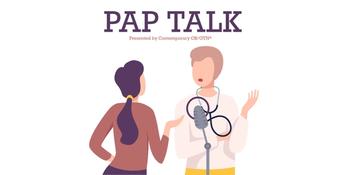
Introducing Contemporary OB/GYN® Editorial Advisory Board member, Yalda Afshar, MD, PhD.

In addition to welcoming a newborn, parents may be unexpectedly billed for some hospitalization services, according to a research letter in JAMA Health Forum.

“Opioids affect placental development and function in animal models, but human data on their association with ischemic placental disease are limited,” wrote the authors.
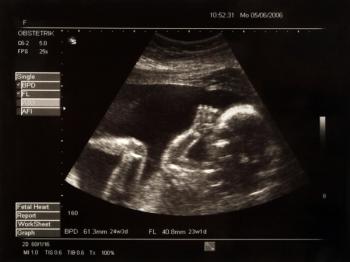
Despite the umbilical artery (UA) Doppler pulsatility index being used to detect elevated fetoplacental vascular resistance, the metric is confounded by variation in fetal cardiac function and is only moderately predictive of placental pathology.

Scott Kober hosts this podcast in which he interviews Lisa Satterfield, senior director of health economics and practice management at the American College of Obstetricians and Gynecologists (ACOG). They discuss the tools and resources available to practicing ob-gyns that are focused specifically on payer and reimbursement issues.

Hear about tools and resources available to practicing ob/gyn to address payer and reimbursement issues.

To gauge progress that had been made in the decade since the establishment of CREOG, more than 4,000 U.S.-based ob-gyn residents were sent a 32-item survey in June 2016 to gauge their comfort level in asking patients about their sexual history and providing counseling to patients of varying ages and ethnic/racial backgrounds.

The policy is part of the organization’s commitment to racial justice and equity.

Introducing Contemporary OB/GYN® Editorial Advisory Board member Yalda Afshar, MD, PhD.

A session at the virtual Scientific Sessions for the American Diabetes Association examined the potential long-term outcomes for a child who experiences neonatal hypoglycemia.

A session at the virtual Scientific Sessions for the American Diabetes Association offered some best practices for diagnosing and treating hypoglycemia.

James M. Shwayder, MD, JD delves into his Legally Speaking column from the May issue of Contemporary OB/GYN®.

The management of diabetes is multifaceted, often requiring the collaboration of a multidisciplinary team of providers. While sexual side effects of diabetes are not commonly discussed during patient visits, there is a correlation between the presence of diabetes and frequent sexual dysfunction in women.

Here's what to expect this week from Contemporary OB/GYN®.
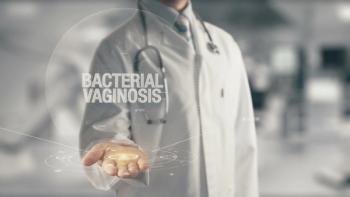
No evidence exists that bacterial vaginosis (BV)-associated bacteria increases the risk of developing uterine fibroids (UFs) or the number of UFs, according to a nested case-control study in the journal Sexually Transmitted Diseases.

Physicians should be aware of the privacy issues when determining the pros and cons of these apps.

An investigation looks into whether a new respiratory support system reduces intubation or death in the delivery room.

Here's what to expect this week on Contemporary OB/GYN®.

A retrospective analysis has found that comprehensive examination of shallow-sequenced, whole-genome cell-free DNA (cfDNA) allows for the incidental detection of maternal tumors, with relatively high precision.
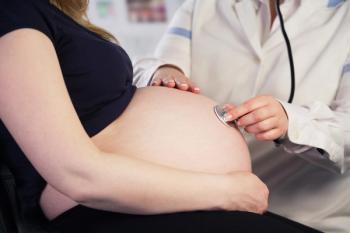
The association between confined placental mosaicism (CPM) and prenatal growth and adverse pregnancy outcomes is significant, according to a literature review in the journal Human Reproduction Update.
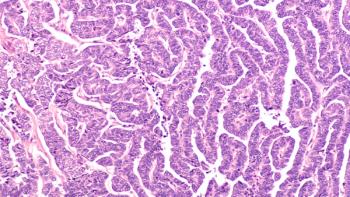
Nemvaleukin alfa (Alkermes) was mostly well tolerated and indicated antitumor activity as both monotherapy and in combination with pembrolizumab among patients with advanced solid tumors, according to study results presented at the annual meeting of the American Society of Clinical Oncology (ASCO), held virtually from June 4-8.

Here's what you missed this week.

While physicians face many financial and legal risks, the elephant in the room is always your professional liability and the risk of a malpractice lawsuit. We start an in-depth look at the facts about these lawsuits including where they happen, who they happen to, and what they cost.

Besides sex hormone levels, predictors for the age at natural menopause (ANM) include irregularity of menstrual cycle, menopausal symptoms, life habits and socioeconomic factors, according to a retrospective study of 105 middle-aged women who kept bleeding diaries.